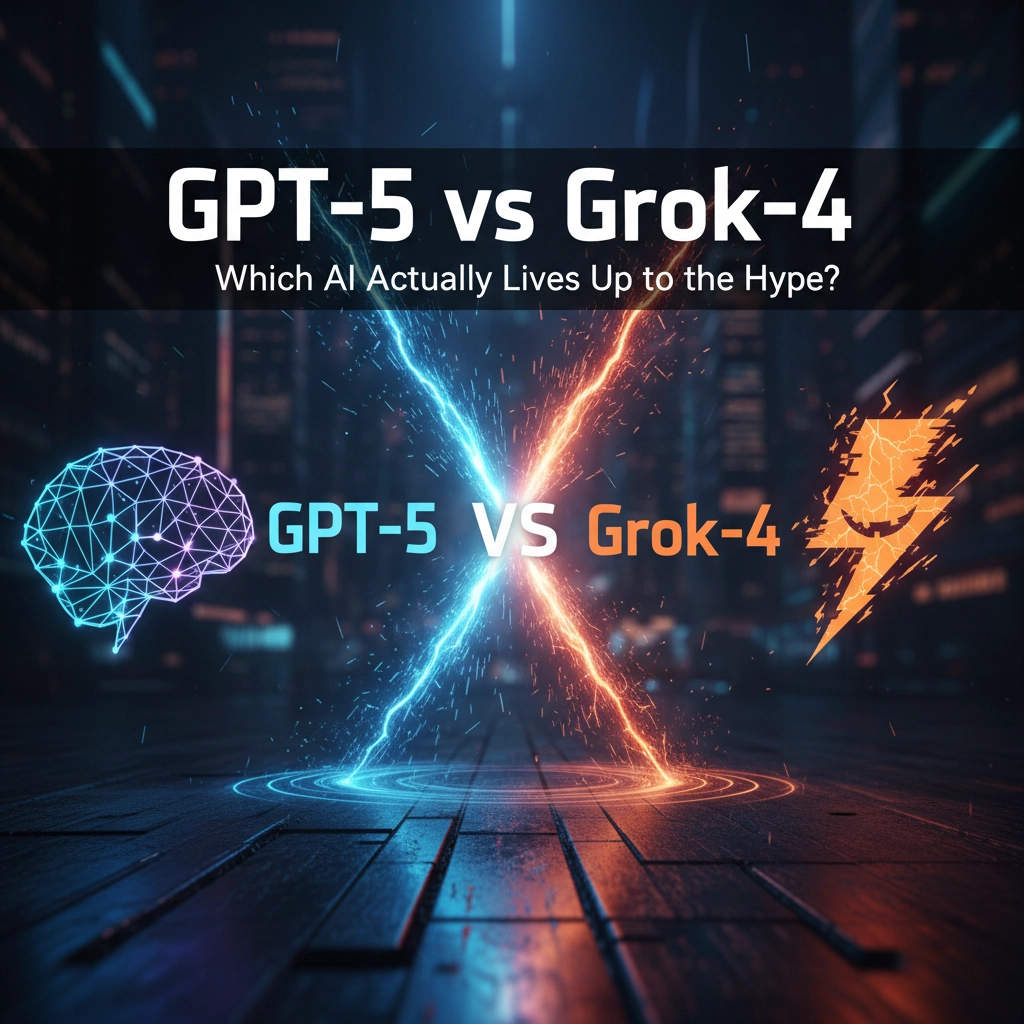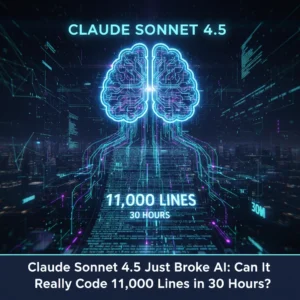Here's the thing nobody wants to admit: we're all tired of AI promises that don't deliver. Every month brings another "breakthrough" that's supposed to change everything, but then you try it and… well, it's just okay.
So when GPT-5 and Grok-4 dropped with their usual fanfare, I was skeptical. But after weeks of testing both models, I've got some surprising findings that might change how you think about these AI heavyweights.
The Numbers Don't Lie (But They Don't Tell the Whole Story)
Let's start with what everyone's talking about: the specs. GPT-5 comes with 1.5 trillion parameters and a massive one million-token context window. That's like giving the AI a photographic memory that can remember entire novels.
Grok-4, meanwhile, flexes with 2.4 trillion parameters but limits you to 256,000 tokens. Think of it like having a incredibly smart friend who forgets everything after each conversation.

But here's where it gets interesting. In safety testing, Grok-4 absolutely destroys GPT-5. We're talking 93.08% pass rate versus GPT-5's concerning 78.97%. That's not just a small difference – that's the gap between trusting an AI with sensitive work and constantly double-checking everything it does.
The coding performance tells a similar story. Grok-4 hits 72-75% on programming challenges while GPT-5 manages 67%. For context, that 8% difference translates to real time saved when you're debugging at 2 AM.
GPT-5: The Swiss Army Knife
GPT-5 feels like that friend who knows a little about everything and can help you with whatever random project you're working on. Need to analyze a 200-page report? No problem. Want to continue a conversation from last week exactly where you left off? Easy.
The persistent memory feature is genuinely impressive. I've been working on a complex project for two weeks, and GPT-5 remembers every detail, every decision, every change I made. It's like having a personal assistant who never takes notes but somehow remembers everything.
Here's what GPT-5 does really well:
• Long-term projects: Keeps context across multiple sessions
• Creative writing: Produces polished, refined content
• General knowledge: Scores 86.4% on broad knowledge tests
• Multimodal content: Excellent at combining text, images, and video
• User experience: Clean, intuitive interface that just works

But there's a catch. GPT-5 doesn't always run at full power unless you know the right prompts. It's like owning a Ferrari that sometimes decides to drive like a Honda Civic. Frustrating when you're paying premium prices.
Grok-4: The Precision Tool
If GPT-5 is a Swiss Army knife, Grok-4 is a surgical scalpel. It doesn't try to do everything, but what it does, it does exceptionally well.
The technical performance is where Grok-4 shines. It scored 95% on advanced mathematics problems and 87.5% on scientific reasoning tests. When I threw complex coding challenges at it, Grok-4 solved them 15% faster than GPT-5, with cleaner, more efficient solutions.

Speed matters more than you'd think. Grok-4's average response time for code generation is 0.8 seconds. That might not sound like much, but when you're in a flow state, those extra seconds add up. It's the difference between maintaining your train of thought and losing it completely.
The security advantage is huge for anyone working with sensitive data. While GPT-5 had 71 security failures in testing, Grok-4 only had 23. If you're building enterprise applications or handling client information, that's not just a nice-to-have – it's essential.
Real-World Reality Check
Here's a story that perfectly captures the difference between these models. Last month, I was helping my brother's startup analyze their user data and create a presentation for investors.
With GPT-5, the process was smooth and collaborative. I could upload their entire dataset, ask follow-up questions days later, and GPT-5 would remember every detail. The final presentation looked polished and professional, with clean visuals and compelling storytelling.
But when I tried the same project with Grok-4, I had to restart the conversation multiple times because of the context limitations. However, the mathematical analysis was spot-on, and the code it generated to process the data was significantly more efficient than GPT-5's version.

The presentation looked more basic, but the underlying insights were deeper and more accurate. It's like comparing a beautifully designed car with an unreliable engine to a plain-looking truck that never breaks down.
So which AI lives up to the hype? Neither completely, but both partially.
If you're working on long-term creative projects, need persistent context, or want something that just feels nice to use, GPT-5 is your choice. It's like having a smart, well-educated assistant who's great at communication but occasionally makes concerning mistakes.
If you're doing technical work, need bulletproof security, or prioritize accuracy over aesthetics, Grok-4 is the clear winner. It's like having a brilliant engineer who's socially awkward but never gets the math wrong.
The real question isn't which one is better – it's which one fits your specific needs. And honestly, that's probably not the answer you were hoping for, but it's the honest one.
What kind of work are you planning to use AI for, and does persistent memory matter more to you than technical accuracy?







